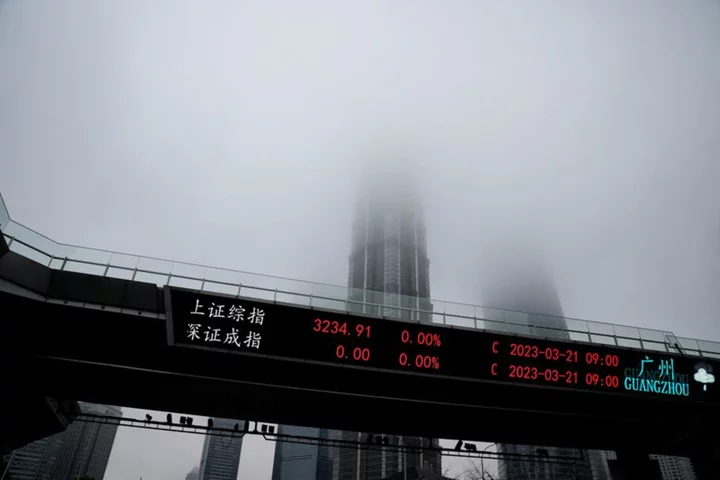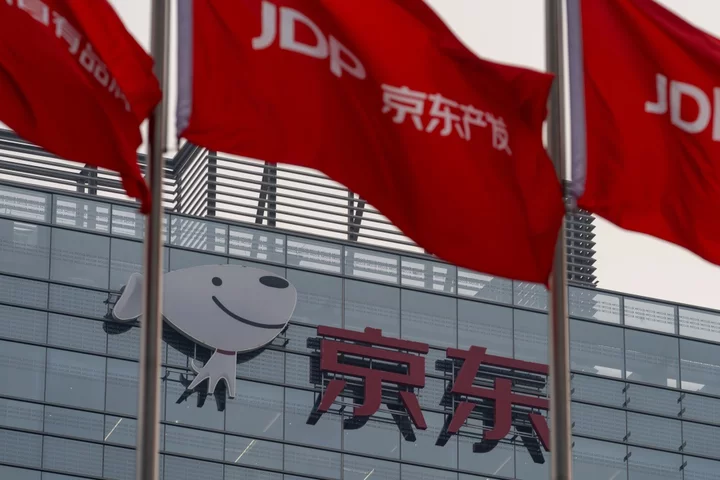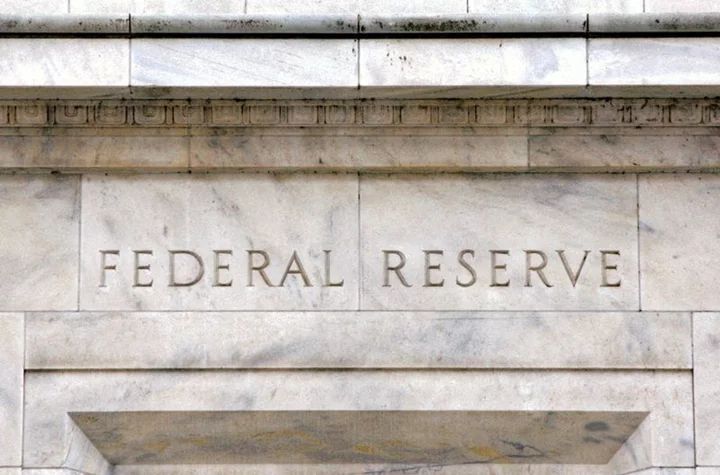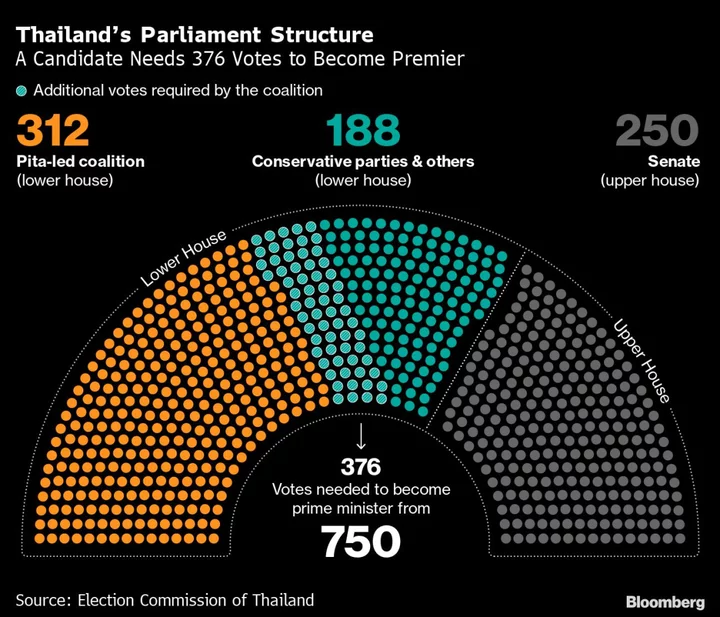By Summer Zhen and Laura Matthews
HONG KONG/NEW YORK Chinese fears of a spillover from missed payments on some shadow banking linked trust products and worsening consumer sentiment are expected to hasten a policy response to revive the country's cash-starved property sector.
Concerns about the outsized exposure of China's $3 trillion shadow banking sector, roughly the size of Britain's economy, to property developers and the wider economy, have grown over the past year as the sector lurched from one crisis to another.
Zhongrong International Trust Co, which traditionally had sizable real estate exposure, has recently missed repayments on some investment products, fuelling contagion fears.
Trust firms operate outside many of the rules governing commercial banks and mainly channel the proceeds of wealth products sold by banks to real estate developers, other sectors, and even some retail investors.
Barclays said in a note that regulators were likely to step in if the market environment deteriorates significantly, and measures used by China in the past to deal with spiking financial volatility have included liquidity injections.
"The risk of a systemic shock to the Chinese financial system is not great, but the downward pressure on the economy will intensify," said Yan Wang, chief emerging markets and China strategist at Alpine Macro.
"These issues are all related, thus the contagion is already happening, and the risk of further spread is material. The government needs to act promptly and aggressively to contain the risk," he added.
Beijing took a step in that direction on Tuesday by cutting key policy rates after a broad array of data highlighted intensifying pressure on the economy, mainly from the property sector.
The latest challenge came from the shadows, with two companies saying over the weekend they had not received payment on maturing Zhongrong International Trust investment products.
Nomura said a wave of defaults on trust products could cause "substantial ripple effects" for China's broader economy as losses suffered by individual investors, lured by higher returns, would have an acute impact on consumption.
"This is something where the problems are probably not going to be confined to this individual trust but are going to spread to or become more evident in the trust industry as a whole," said Arthur Kroeber, partner and head of research at Gavekal in New York.
"I think they're within the ability of the government to manage without any sort of dramatic explosion or blow up. But it's a long, slow-burning problem."
Even as China's property problems have torn through the economy in the last few years, Beijing has so far managed to contain the impact on the financial industry.
'CONTAGION'
The trust sector had been a major fundraising channel for property developers seeking rapid expansion. But since 2021, when real estate slipped into a downturn, some of them have gone bust, while others have divested investments in property firms.
Beijing has also ramped up efforts since 2017 to reduce the size of the shadow banking sector amid concerns over financial stability. As of end-2022, assets held by trust firms totalled 21 trillion yuan, down about 20% from end-2017.
The outstanding value of trust products invested in the property sector was 1.2 trillion yuan as of end-2022, down about 30% year-on-year. Still, exposure to the real estate sector varies from different trust firms.
"The real contagion may just be what we are already seeing - weak consumer and business confidence which is dragging down growth. The government is well aware of this but has so far been very timid in its response," said Kamil Dimmich, partner and portfolio manager at North of South Capital LLP, in London.
Barclays said since trust product clients tend to be wealthy individuals or companies, the authorities may have some "tolerance for market forces to play out".
Rayliant Quantamental China Equity ETF co-portfolio manager Phillip Wool said the rise in defaults by trust firms would result in another hit to confidence, as home buyers will not feel comfortable putting down a big down payment.
"As for whether Beijing steps in, I think we're getting to a point where that has to happen. The deeper confidence sinks, the harder that is to reverse," Wool added.
(Reporting by Vidya Ranganathan in Singapore, Summer Zhen in Singapore, Laura Matthews and David Randall in New York, Ziyi Tang in Beijing; Editing by Sumeet Chatterjee and Alexander Smith)









